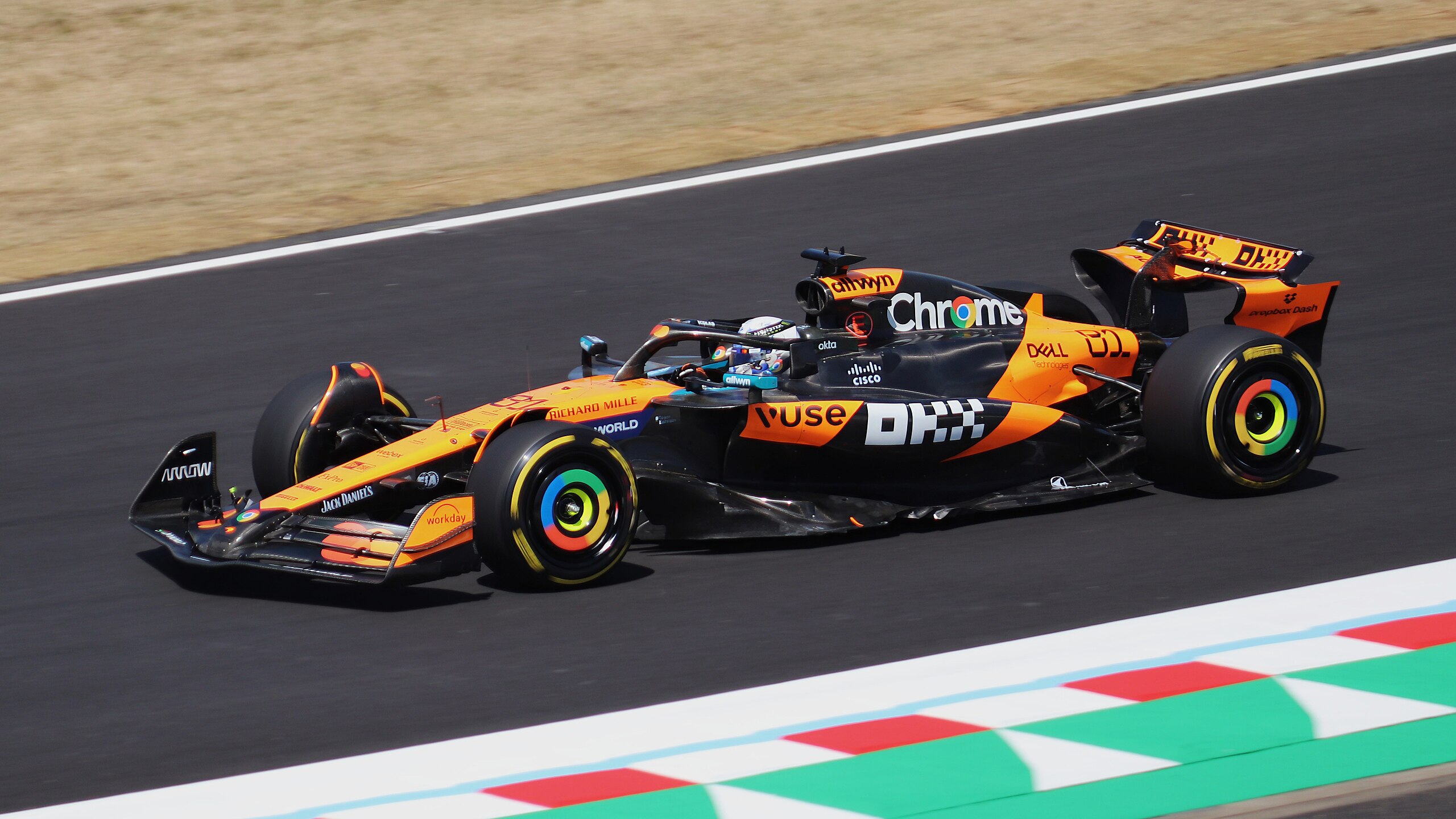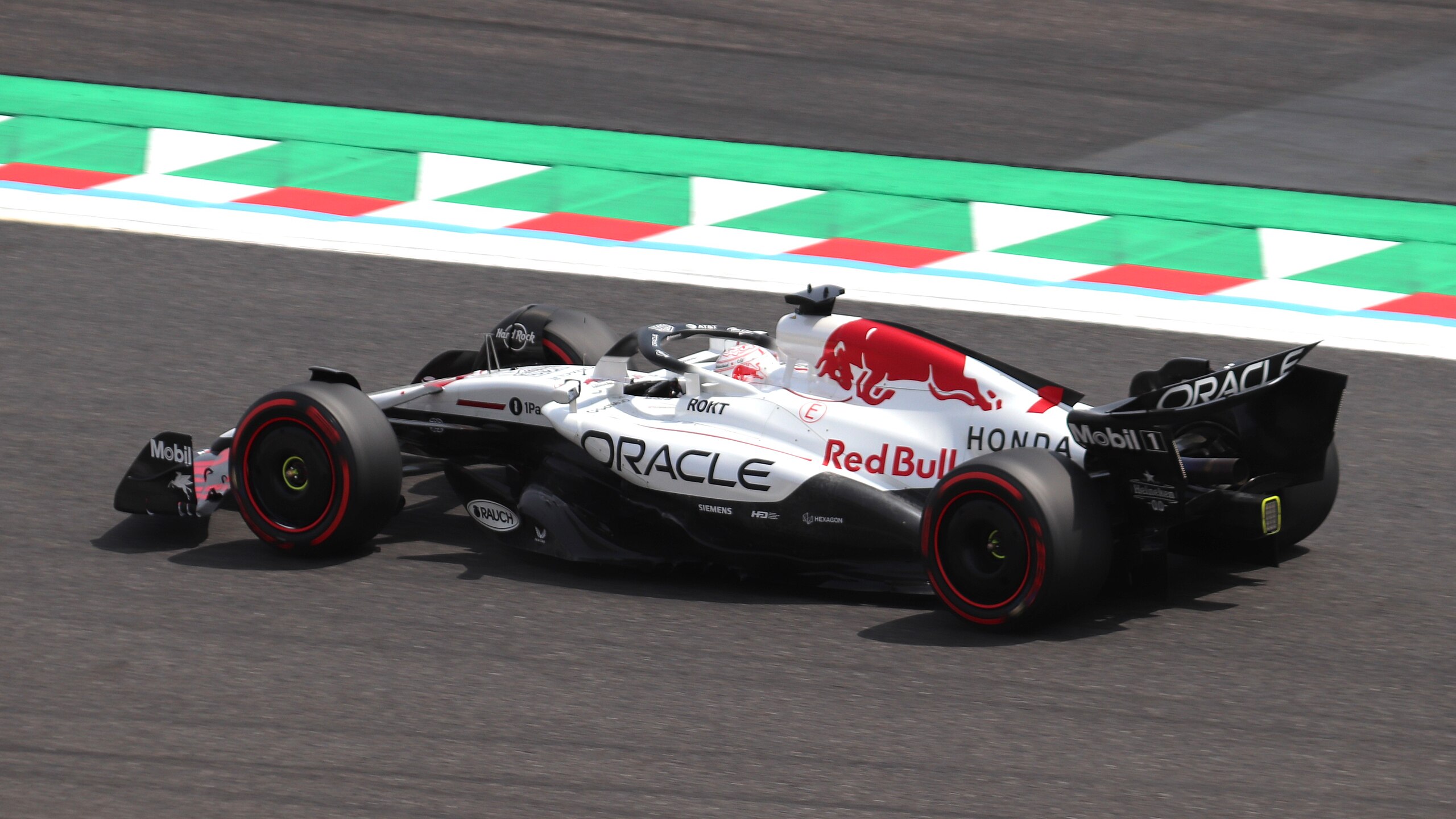Are you willing to sponsor?
Are you ready to explore the transformative power of athlete sponsorship for your brand? Click here to learn more about how sponsorship can help brands grow and thrive in the exciting world of motorsports.
By Emanuele Venturoli| Posted May 16, 2023 | In Sport Sponsorship, Sports Marketing
As the world of sports evolves, the landscape of sports sponsorship is constantly changing too. For modern entrepreneurs seeking to leverage the power of sports for their brands, understanding these changes is crucial. This article serves as a comprehensive sports sponsorship guide for contemporary businesses, highlighting the essentials of navigating this dynamic domain.
Sports sponsorship represents a symbiotic relationship between sports entities and businesses. At its core, it is a form of marketing where a company pays to be associated with a specific team, league, or sporting event. This association goes beyond simple name recognition. Unlike traditional advertisements, which can often feel disruptive or unrelated to the consumer’s experience, sponsorships allow a brand to be seamlessly integrated into the event or sports personality they are sponsoring.
This integration often leads to a more organic connection between the brand and its target audience. It’s a type of marketing strategy that not only increases visibility but also strengthens brand identity. For example, a company that sponsors a sports team known for its environmental initiatives can convey its commitment to sustainability. This form of associative marketing can be highly effective in aligning brand values with consumer interests, making it an attractive option for many businesses.

In today’s saturated advertising market, sports sponsorship offers a unique avenue for brands to stand out. It provides a platform for exposure to large, engaged audiences, both at live events and through broadcast media. Sports fans represent a diverse, wide-reaching demographic that often shows intense loyalty to their chosen teams or athletes. By sponsoring a sports entity, businesses can tap into this loyalty and foster a similar sentiment towards their brand.
Sports sponsorship also allows companies to align themselves with the values, emotions, and excitement that sports evoke. When a brand is associated with the exhilaration of a last-minute goal, the determination of a come-from-behind victory, or the unity of a team working seamlessly together, these emotions can positively reflect on the brand itself.
Moreover, in a world where consumers are increasingly selective about the brands they support, sports sponsorship provides an opportunity for companies to demonstrate their commitment to local communities. Many sports teams and athletes are deeply involved in community outreach and charitable initiatives. By sponsoring these entities, companies can not only gain exposure but also showcase their social responsibility, which can significantly enhance their brand image.
Sports sponsorship, therefore, isn’t just a marketing strategy—it’s a potent tool that can drive brand recognition, foster customer loyalty, and enhance brand image. Understanding its intricacies is the first step for entrepreneurs aiming to leverage its potential in the modern business world.
In the realm of sports sponsorship, several options are available to businesses, each offering unique benefits and opportunities. Choosing the right type of sponsorship can dramatically affect the success of a company’s marketing campaign.
Event sponsorship is one of the most common types of sports sponsorship. This involves a brand associating itself with a particular sporting event, such as a football match, a motorsport race, a marathon, or even an entire tournament like the FIFA World Cup or the Olympic Games.
The brand could gain naming rights, where the event is referred to in combination with the company’s name, or they may have their logos prominently displayed on banners, tickets, and promotional materials. They might also have the opportunity to set up on-site activations, where they can interact directly with attendees and create memorable experiences.
Event sponsorship provides broad exposure and a chance to reach a diverse audience in a concentrated time frame. The high level of media coverage these events receive can also increase the brand’s visibility significantly. Moreover, if the event aligns with the brand’s values and target demographic, it can lead to a high impact on brand recall and recognition.
Team sponsorship involves a brand sponsoring an entire sports team, making it a more long-term and wide-reaching commitment. This includes not just the team’s performances on the field but also their community activities and outreach programs. Team sponsorship often includes the company’s logo on team jerseys, equipment, and training facilities. The brand may also benefit from media appearances, player endorsements, and access to exclusive content for promotional purposes. This kind of partnership offers a unique opportunity to tap into the loyalty and passion that fans have for their favorite teams. Furthermore, the team’s values, accomplishments, and even its geographical location can help the brand connect with specific demographics and markets.
Individual athlete sponsorship involves companies sponsoring specific athletes, using their personal brand, reputation, and popularity to promote their products or services. Sponsored athletes can become brand ambassadors, wearing the brand’s logo during competitions, appearing in advertising campaigns, and promoting the brand on social media. They can also make public appearances at company events and help create unique content.
Athlete sponsorship can be incredibly powerful as it leverages the personal connection that fans have with the athlete. An athlete’s story, personality, and values can create a strong emotional link with fans, and by extension, with the sponsoring brand. This type of sponsorship can be particularly effective when the athlete’s image aligns well with the brand’s identity.
Ultimately, the choice between event, team, or individual athlete sponsorship will depend on a brand’s specific objectives, budget, and target audience. Each type offers unique opportunities, and a well-planned combination can often yield the best results.

Successful navigation of sports sponsorship requires a strategic approach, involving careful selection, comprehensive planning, and effective execution. Here are some crucial steps to ensure success:
The first step towards a successful sports sponsorship strategy is aligning with the right sport. The sport you choose to sponsor should resonate with your brand’s identity and target audience.
For instance, if your brand targets a young, energetic demographic, sponsoring extreme sports like snowboarding or skateboarding might be an excellent fit. If your brand emphasizes luxury and sophistication, aligning with sports like golf or tennis might be more suitable1.
The sport you choose should also align with your brand values. If environmental sustainability is a core value of your brand, sponsoring an eco-friendly event like a green marathon can enhance your brand image1.
Whether it’s event sponsorship, team sponsorship, or individual athlete sponsorship, the choice depends on your brand’s specific goals. Understanding your brand’s needs and objectives is key to making this decision.
If your goal is to maximize exposure in a short time, event sponsorship, particularly of a high-profile event, might be the best choice. If you aim to cultivate deep, long-term connections with a loyal fanbase, team sponsorship could be the way to go. If your brand seeks to leverage the popularity and personal connection of a sports figure, athlete sponsorship might be your best bet.
In the digital age, social media plays a crucial role in sports sponsorship. Brands can leverage social media to engage with fans, share behind-the-scenes content, and amplify their sponsorship’s reach. Social media platforms offer a direct line of communication with fans, providing an opportunity to interact, share news, and gather feedback. Behind-the-scenes content, such as player interviews, training sessions, or glimpses into the preparations for an event, can create a sense of exclusivity and deepen fan engagement3.
Additionally, hashtags related to your sponsorship can amplify its reach and visibility. Encouraging fans to use the hashtag when posting about the sponsored team, athlete, or event can also generate user-generated content, which can further increase engagement and reach.
Like any marketing strategy, measuring the success of your sports sponsorship is key. This involves tracking key performance indicators (KPIs), such as brand awareness, audience engagement, and return on investment (ROI).
Brand awareness can be gauged through surveys and by tracking mentions of your brand on social media and other online platforms. Audience engagement can be measured by tracking likes, shares, comments, and other interactions on your social media posts related to the sponsorship. ROI can be determined by comparing the cost of the sponsorship to the revenue generated directly or indirectly from it.
By effectively aligning with the right sport, choosing the appropriate sponsorship type, leveraging social media, and measuring your success, you can navigate the world of sports sponsorship successfully and gain a competitive edge in the market.
In the modern business world, sports sponsorship presents a unique opportunity for brands to connect with their audience in a meaningful way. By understanding the dynamics of sports sponsorship and navigating its complexities effectively, entrepreneurs can maximize their marketing efforts and truly make a mark in the sports world.
Are you ready to explore the transformative power of athlete sponsorship for your brand? Click here to learn more about how sponsorship can help brands grow and thrive in the exciting world of motorsports.

A graduate in Public, Social and Political Communication from the University of Bologna, he has always been passionate about marketing, design and sport.
The online platform where you can discover the latest trends, strategies and insights from the exciting world of sports marketing.
View our blog
July 1, 2025
In the complex and exciting world of Formula 1, performance no longer belongs exclusively to wind tunnels and race strategies. It also unfolds in boardrooms, brand labs, and experiential mark[...]
Read More
June 18, 2025
When you think of sports, what comes to mind? For many, the answer is sports marketing management. We see Super Bowl or Olympic commercials and it seems like every other product is marketed t[...]
Read More
May 6, 2025
Motorsport sponsorship has long been perceived as the domain of corporate giants, with multinationals like Shell, Red Bull, and Petronas dominating the paddock. However, in recent years, a ne[...]
Read MoreIn an era where it is possible to get anywhere with a click, there is a strong temptation to approach teams and properties directly for sponsorship projects.
By doing so, we are convinced that we are shortening the value chain, saving time and money. However, these DYI methods are anything but risk-free and what initially appears to be a competitive advantage soon turns into a problem that is difficult to resolve. That’s why there are agencies. And this is why you should rely on us for your sponsorships.
When first approaching a sponsorship or sports marketing project, it is difficult to know immediately which stakeholders are correct, what the decision flow is, and what the right timelines are for each process. Sports is a very specialized field of action, and fitting effectively into its paths can take a lot of time and therefore money. We, on the other hand, know referents and spheres of action and know who to talk to, when and how. So you are also more effective.
Sports is an immense passion, and for our heart colors we would be willing to do anything. But business is a different business, and it is important to make the best possible strategic decisions based on independent research, statistics and reliable data. A sports marketing and sports sponsorship agency like RTR has an objective, 360-degree picture of the scenario and can tell you what is really best for you: which sport, which athlete, which team. This is because we possess a great deal of data and information on ratings, segmentation and attitudes. Because the numbers don’t lie. Never.
Activations are the real heart of sports sponsorship. Without them, there remains only a blank sticker on a motorcycle, car or uniform and no contact with the public, no emotional connection, no impact on the bottom line. Then how do you do it? It certainly won’t be the teams or the athletes who will help you leverage sponsorship and enjoy the many marketing rights you have paid for. To bring out the best in a sports marketing project you need an agency that knows how to use sponsorship to engage the fanbase on the Web, to reach out to Shopping Centers, to organize hospitality, to develop B2B and B2C opportunities, and to get “your” athletes in front of millions of potential consumers.
Would you ever go to the dealer who sold you the car and ask if the competitor’s car is better? No, of course. So, how do you expect to get firm measurements of the effectiveness of your sponsorship if you do not rely on someone super partes? At RTR, we have always worked with independent third-party agencies that allow us to know the return on any exposure of your brand on TV and in the media. In addition, we believe in calculating ROI as the ultimate measure of your success-so we can tell you for every penny you spend how much you are making.
We have been involved in sports sponsorship and sports marketing for more than 15 years. We are consultants in the sense that our goal is to maximize your investment, but we are also an agency that manages the project from start to finish. We have been doing this since 1995 with passion and professionalism, following three principles that have become cornerstones of our business: independence, verticality and transparency.
I would like to highlight the fact that one of the qualities of RTR is its great ability to approach the sponsorship scenario strategically, together with its passionate attitude, its amazing enthusiasm for solving problems, and its high level of professionalism.
Gianluca Degliesposti
Executive Director Server&Storage EMEA
Eurosport is truly delighted with its business relationship with Riccardo Tafà, who has become extremely popular, thanks to his detailed knowledge of the sports marketing sector and his highly diligent attitude to work.
Francois Ribeiro
Commercial Director
Passion and Expertise are the features that I have found in RTR since the very beginning. Serious and reliable professionals but also very helpful, nice and open-mind people, willing to listen and compare different ideas. All the values in which RTR believes make this agency a partner, not just a supplier, a partner with whom we have had the opportunity to achieve significant commercial results in term of success and image.
Luca Pacitto
Head of Communication
We have been working with RTR Sports Marketing for over 10 years. The objectives and the programmes of collaboration continue to be renewed and to grow with mutual satisfaction. I believe RTR is a team of great professionals led by Riccardo Tafà, who I consider a manager of exceptional skills and with a great passion for his work.
Lucio Cecchinello
Team Principal
I have known and worked with Riccardo Tafà since 1995 when we collaborated for the first time on a project for the Williams Formula 1 team. Several clients followed. After leaving Williams to work for Gerhard Berger then owner of the Toro Rosso F1 Team, I turned again to Riccardo to seek his help in finding a tool supplier for the team and Riccardo duly obliged with an introduction to USAG, a partnership with Toro Rosso which endured for five years. I recently started a new role as Group Commercial Director for the renowned Andretti Autosport organisation and I find myself working with Riccardo once again on a number of interesting projects. Why has this relationship with Riccardo endured ? He’s smart, knows the commercial side of sport inside out and back to front and he’s honest and trustworthy. Riccardo Tafà is a “doer” not a “talker”: in over 20 years I have never had a dispute either with him or with a company that he has introduced and each partnership introduced by Riccardo has delivered quantifiable ROI to rights holder and sponsor alike. I can think of no better testimonial of Riccardo’s diligence, knowledge, contact base and hard work than that.
Jim Wright
Group Commercial Director
The online platform where you can discover the latest trends, strategies and insights from the exciting world of sports marketing.
View our blog
July 4, 2025
When, in 1950, the Formula 1 kicked off at Silverstone, no one could have predicted that, 75 years later, it would become much more than a sport. Today, F1 is a global phenomenon, a cultural,[...]
Read More
July 1, 2025
In the complex and exciting world of Formula 1, performance no longer belongs exclusively to wind tunnels and race strategies. It also unfolds in boardrooms, brand labs, and experiential mark[...]
Read More
June 26, 2025
The European Commission has provided Liberty Media Corporation with unconditional approval to complete the acquisition of the MotoGP World Championship. The process of annexing the top motorc[...]
Read More